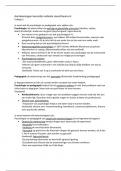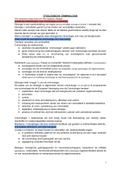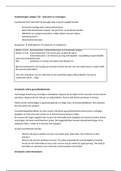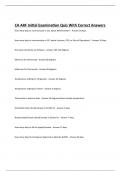Summary
Summary all lectures - Philosophy and Neuroethics (PNEU)
- Course
- Institution
In this file, I have summarized all the exam-related material. This includes a summary per week of the lecture material along with a summary of the literature material. To top that off, I have also added a practise exam with answers (I highly recommend you to study this carefully) and a short gui...
[Show more]












